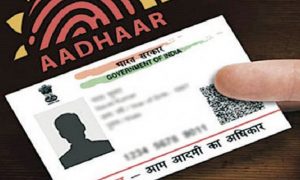By Rajiv Nath
To become a dependable manufacturer of high-quality medical devices and the second global factory of the same, India needs to bring in a quality culture. The Prime Minister should constitute a National Quality Advisory Council and a dedicated Principal Quality Adviser to the PM to evaluate quality and safety standards of Indian products including medical devices vis-à-vis global standards, and advise and guide the nation on strategies for uplifting the standards of these, on the lines of the Office of the Principal Scientific Adviser.
During Covid-19, India faced hurdles in weeding out substandard medical products flooding the markets. Quality checking institutions report to different ministries and act in silos; they have assigned roles and do not have a holistic outlook, being limited by their domains. The Bureau of Indian Standards (BIS) runs a voluntary standard compliance scheme of ISI mark and reports to the Department of Consumer Affairs; the Quality Council of India (QCI) has independent boards of NABH (hospital accreditation), NABCB (accreditation of certification bodies), NABL (labs) and NABET (education), and the QCI and its boards report through the DPIIT to the commerce and industry minister. The BIS is headed by an IAS officer, a generalist, as is the case with the QCI.
Also, if the country needs labs and testing infrastructure to test PPE coverall or masks or ventilators, who plans and decides? Not NABL as its job is only accreditation of labs, not the BIS as it has too many products and is not equipped, not the DCGI-CDSCO as they have no funds. Armed forces, the DRDO, the Indian Institute of Science or IITs have some great infrastructure, but industry is not clear who has what and if access is possible for commercial third-party testing and if these are accredited and have value and international acceptance.
For the success of Make-in-India, we need a quality mindset of vertical product standards, horizontal standards and common product family standards, specifications, voluntary standards setting, and at times safer regulatory controls and demonstration of compliance to standards with the help of test labs. These labs are not only needed for tests, but also to benchmark evaluations and R&D studies so that manufacturers know where they stand.
We are glad the government is taking steps to end the 80-90% import dependence forced upon us and an ever-increasing import bill of over Rs 41,426 crore, by expediting steps for patients’ protection, stronger quality and safety regulations, price controls to make medical devices and quality treatment accessible, and affordable and ethical indigenous manufacturing.
Assigning a common quality leader backed by a think tank to advise and coordinate all these national institutions, not only for the healthcare sector, but also across the entire engineering and consumer products sectors, will give a boost to Make-in-India. It will also give a fillip to the Atmanirbhar Bharat vision of the Prime Minister by having world-class manufacturing facilities for not only medical devices, but also for maintaining global standards in quality, supplying quality products to the Indian consumers, as well as for the value-added profitable export markets.
Amidst the Covid-19 pandemic and growing Indo-China tensions, India has to address every issue linked to national security and become globally competitive. Healthcare being the most critical, as it exposes the chinks in national health security. India has to evolve imaginative policies and usher in reforms that will accelerate its economic revival. Developing our own quality goods is the best way forward. Competitiveness is not only demonstrated by price, but also by quality and the value delivered.





































